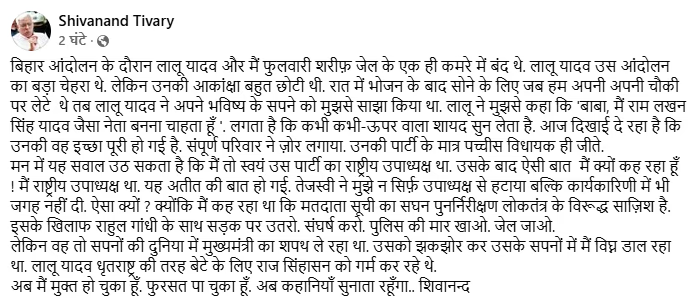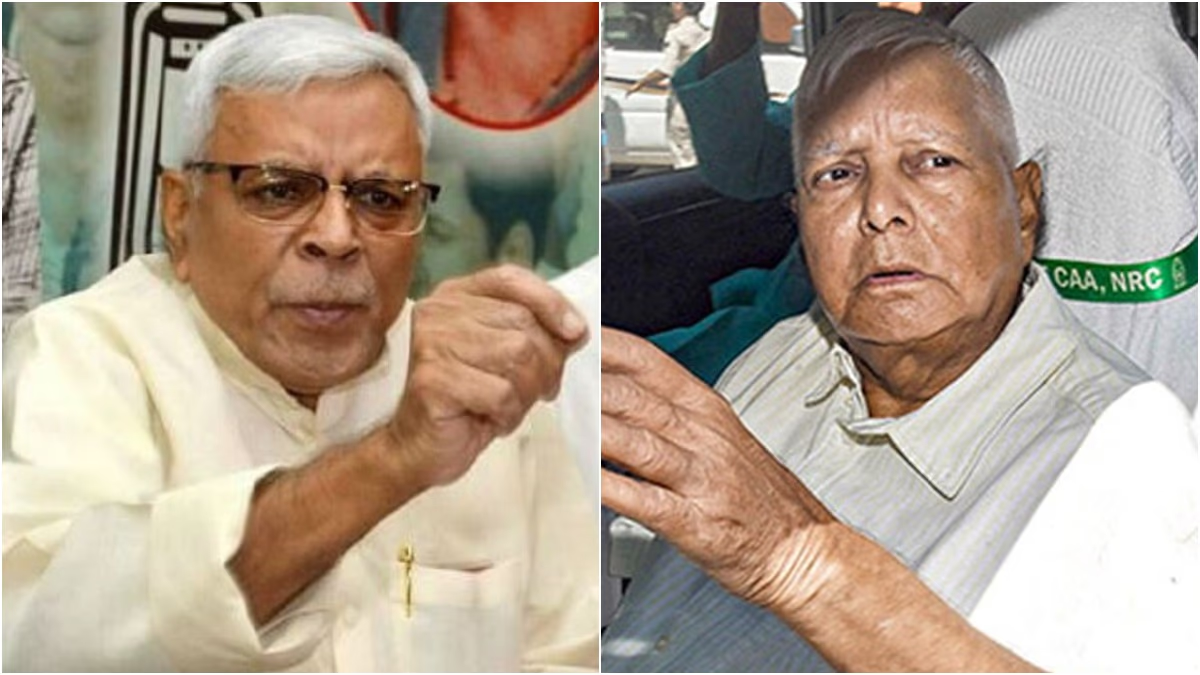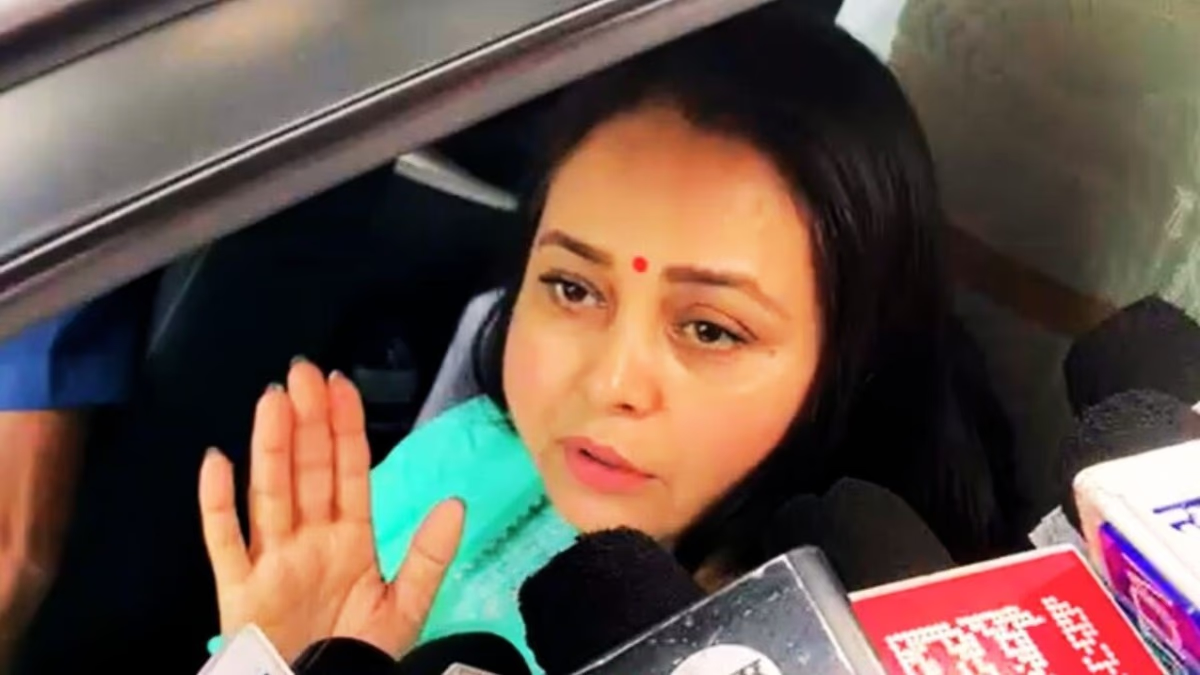Following the disastrous loss of RJD and the Grand Alliance in the Bihar Assembly elections, Tejashwi Yadav finds himself cornered within his own family and party. He, along with his advisors, is blamed for the party's downfall. In this context, Shivanand Tiwari, once a close aide of Lalu Yadav and former national vice president of RJD, has launched a scathing attack on Tejashwi. Through a post on the social media platform Facebook, he declared that Lalu Yadav has become Dhritarashtra, blinded by his love for his son.
Recalling the days of the Bihar Movement, when Shivanand Tiwari and Lalu Yadav were imprisoned together, Tiwari wrote in his Facebook post, 'We were both confined in the same cell at Phulwari Sharif Jail. Lalu was a prominent figure of the movement, yet his aspirations were modest. After dinner, as we lay on our cots, Lalu shared his dream with me, stating, “Baba... I want to become a leader like Ram Lakhan Singh Yadav.”'
Tejashwi Dwells in a Dream World: Shivanand
Tiwari further wrote, 'It seems that sometimes the divine hears one's prayers. Today, it is evident that his wish has been fulfilled. The whole family strived hard, yet only 25 legislators from his party managed to win. A question may arise as to why I, a former national vice president of the party, am saying this. Being the national vice president is a thing of the past for me. Tejashwi not only removed me from the position but also excluded me from the executive committee. Why? Because I was advocating for the detailed review of the electoral rolls, which I argued was a conspiracy against democracy.'

Source: aajtak
In his post, Tiwari stated, 'I advised Tejashwi to join forces with Rahul Gandhi and take to the streets against the Special Intensive Revision of electoral rolls... Fight... Face police brutality... Endure imprisonment. But he, lost in his dreams, took an oath as Chief Minister. I was seen as a disruptor of his dreams. Lalu Yadav, like Dhritarashtra, was warming the throne for his son. Now I am free. I have nothing to lose. I will continue to tell stories.'
Lalu Yadav: An Offshoot of the Bihar Movement
The Bihar Movement began in 1974 under the leadership of Jayaprakash Narayan (JP) as a massive people's movement. It is also known as the JP Movement or Total Revolution Movement. During the 1970s, Bihar witnessed rising unemployment, soaring inflation, rampant corruption, and administrative disarray. Students, youth, and the general public were disgruntled by these issues. This led to protests in Patna, where students called upon Jayaprakash Narayan to lead their cause.
JP dubbed this movement as 'Total Revolution,' emphasizing changes in the political system, elimination of corruption, educational reforms, social justice, and protection of democratic rights. The impact of the Bihar Movement extended beyond the state, creating a national uproar that altered the political climate against the then Indira Gandhi government and preluded the imposition of the Emergency in 1975. This movement paved the way for the nation's first non-Congress government (Janata Party government of 1977). Leaders like Nitish Kumar and Lalu Prasad Yadav emerged from this movement, leaving an indelible mark on Indian politics.
Who Was Lalu’s Inspiration, Ram Lakhan Singh Yadav?
Ram Lakhan Singh Yadav was born on March 9, 1920, in Harirampur village, then part of Patna district, Bihar. A member of the Yadav community, he was affectionately known as 'Sher-e-Bihar' and 'Ramlakhan Babu.' As a freedom fighter, he actively participated in the Quit India Movement of 1942. He served long tenures as a member of the Bihar Legislative Assembly and was the State's Public Works Minister from 1963-67 in the K.B. Sahay government. Later, he entered the Central political arena and was a member of the 10th Lok Sabha from 1991 to 1996, serving as the Union Minister for Chemicals and Fertilizers from 1994-96.
Ram Lakhan Singh Yadav was a social reformer with a vision predicated on education and upliftment of backward classes. He was deeply committed to the principle of 'Education for All' and played a crucial role in establishing numerous colleges and schools across Bihar, facilitating access to education for the backward and impoverished sections. Many educational institutions bear his name, including the Ram Lakhan Singh Yadav College in Ranchi. He passed away on January 16, 2006, and is regarded as a symbol of social unity (samarsata).




